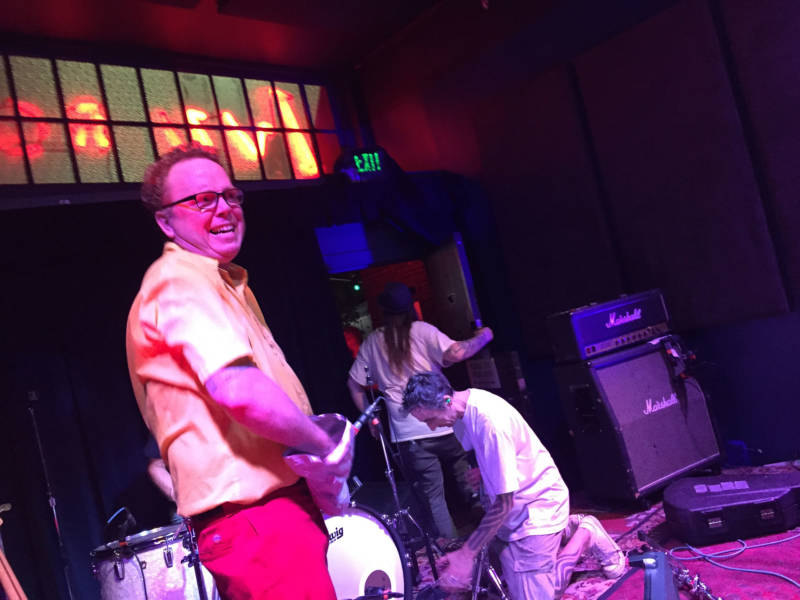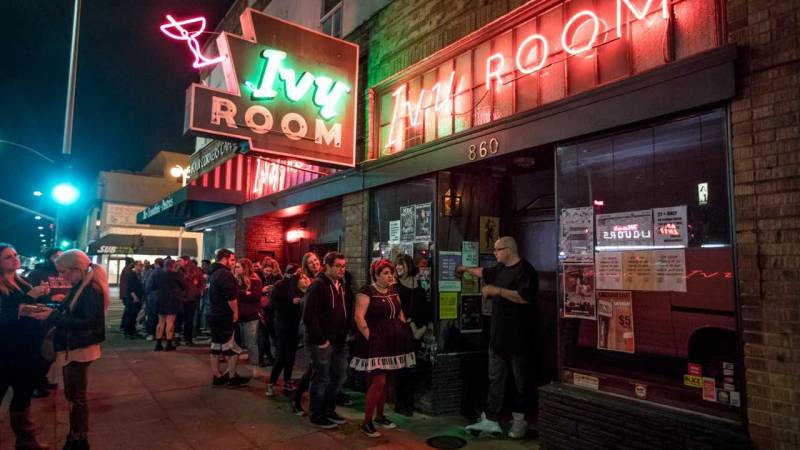Since taking over the Ivy Room in 2015, Lani Torres and Summer Gerbing have prided themselves on doing everything right. Transforming the venerable Albany dive bar into one of the East Bay’s liveliest music venues, they cultivated a devoted clientele with an exuberantly eclectic roster of acts. They’ve covered their bills, paid the artists who drew throngs to the intimate club and kept up insurance payments in case anything went wrong.
So when the spread of COVID-19 led to the Bay Area’s March 17 shelter-in-place order and the Ivy Room shut its doors, they figured their business interruption insurance would help the club weather the storm. But their insurer, First Mercury, denied their claim, putting the Ivy Room in the same boat as hundreds of other venues that have filed claims with their insurers. Last Wednesday, the owners struck back, filing a class action lawsuit on behalf of California-based music venues insured by First Mercury.
Despite collecting premiums for such risks, First Mercury is “categorically denying claims from venues arising from California’s mandated interruption of business services,” according to a complaint filed by Oakland-based Gibbs Law Group and Washington D.C. firm Cohen Milstein Sellers & Toll PLLC. Rather than investigating individual claims, First Mercury has responded with form letters denying coverage that, the suit argues, “appear to rest on crabbed readings of coverage language and overbroad readings of exclusions. That gets insurance law exactly backwards—and raises the specter of bad-faith denials.”

First Mercury, which is based in Southfield, Michigan, could not be reached for a response. The National Association of Insurance Commissioners, the U.S. standard-setting and regulatory support organization governed by all 50 states’ chief insurance regulators, released a statement in March stating that “business interruption policies were generally not designed or priced to provide coverage against communicable diseases, such as COVID-19, and therefore include exclusions for that risk.”
David Sampson, president and CEO of the American Property Casualty Insurance Association, said that insurance companies started excluding coverage for loses from viruses, bacteria and contaminations after the 2003 SARS outbreak. “Only the federal government can be the full bridge for a crisis of today’s proportion,” Sampson said. “The proof is in the numbers—this pandemic is unprecedented in its scale, reach and economic impact.”

For Torres and Gerbing, the claim denial raises questions about the point of a business interruption policy, and they’re hoping to rally fellow club owners with the class action suit. “We all are extremely frustrated with this situation,” Torres said. “All the other club owners at their wits’ end. We pay so much money and this kind of situation is what we were paying for.”


